.webp)
© History Oasis
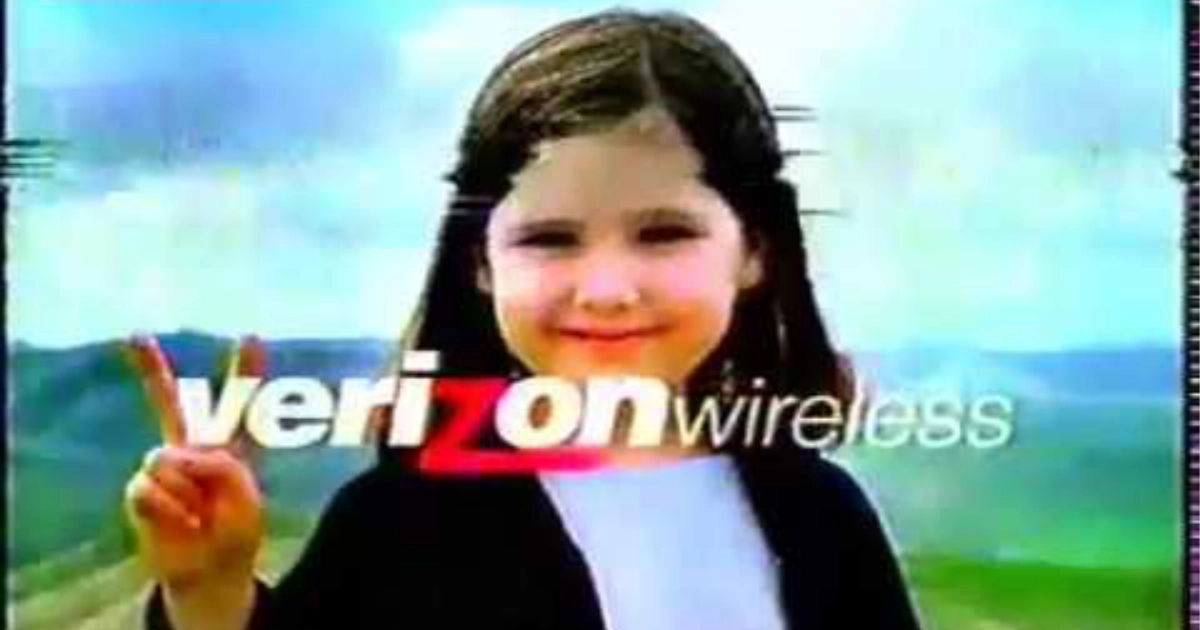
2000-2002
Bell Atlantic and GTE merged to create Verizon, becoming America's largest wireless provider with 16 million customers. The company needed a brand identity for this new giant. They chose a new telecom slogan, "Join In" and hired James Earl Jones to narrate the launch campaign. The ads featured a peace sign that doubled as the letter "V." Verizon invested $3 billion in network infrastructure that first year, the biggest wireless spending spree in history.
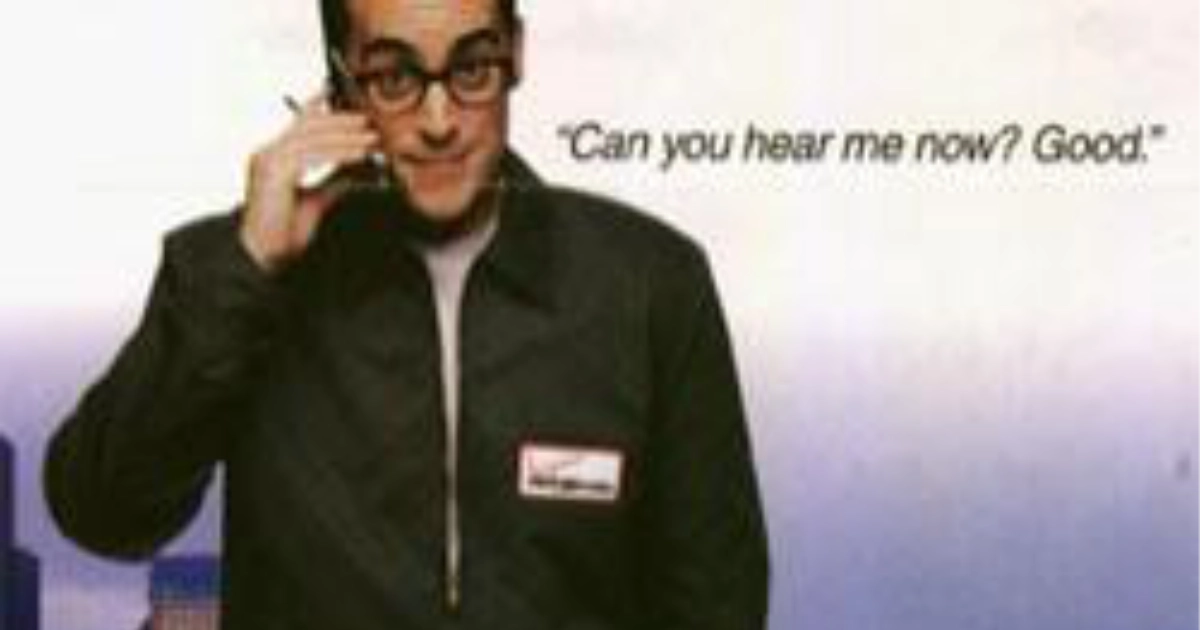
2002-2011
Dropped calls plagued early cell phone users. Verizon turned this frustration into an iconic marketing campaign. They hired actor Paul Marcarelli to play "Test Man," paying him $250,000 annually. His contract came with strict rules: no other commercials, keep his identity secret, never discuss the campaign. The character represented real Verizon engineers who drove 100,000+ miles yearly, testing network quality.
The results spoke for themselves. Verizon's customer base grew 10% in year one, then 15% more in year two. Customer churn dropped from 2.5% to 1.8%. The phrase entered the Oxford English Dictionary and became part of American culture.
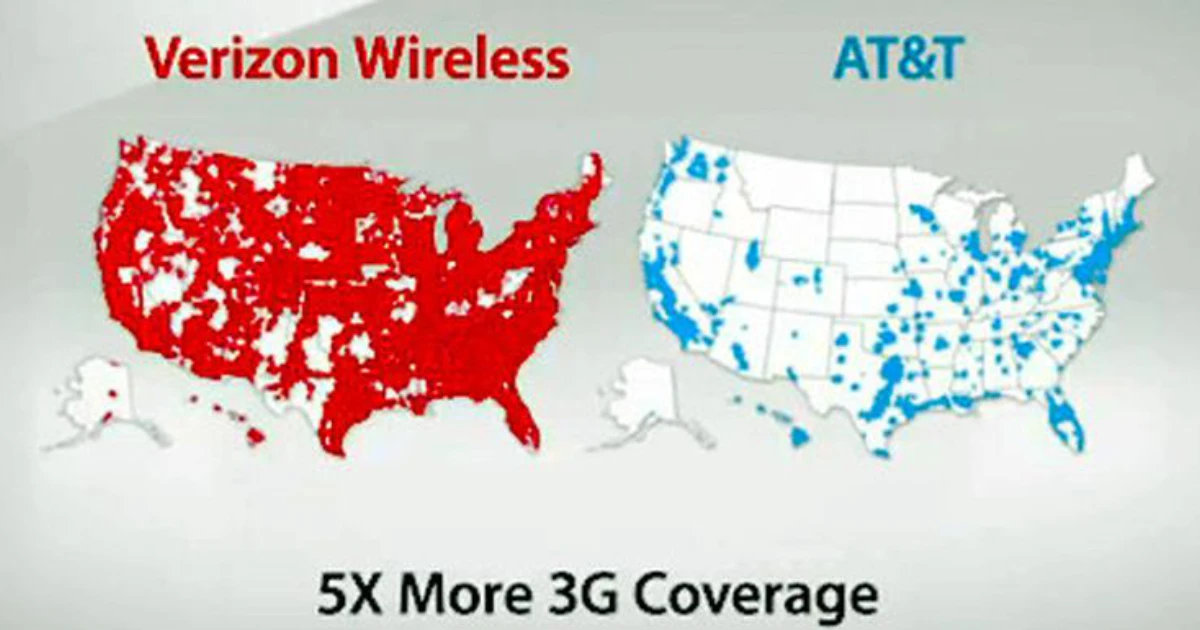
2009
In 2009, Verizon attacked AT&T where it hurt most: coverage maps. While AT&T served as the iPhone's exclusive carrier, Verizon showed side-by-side maps revealing AT&T's spotty 3G network. The slogan played off Apple's "There's an App for That."
AT&T sued Verizon, not because the maps were wrong, but because AT&T claimed consumers might think they only got coverage in the sparse areas shown. Verizon's map showed complete coverage. AT&T's looked like Swiss cheese.
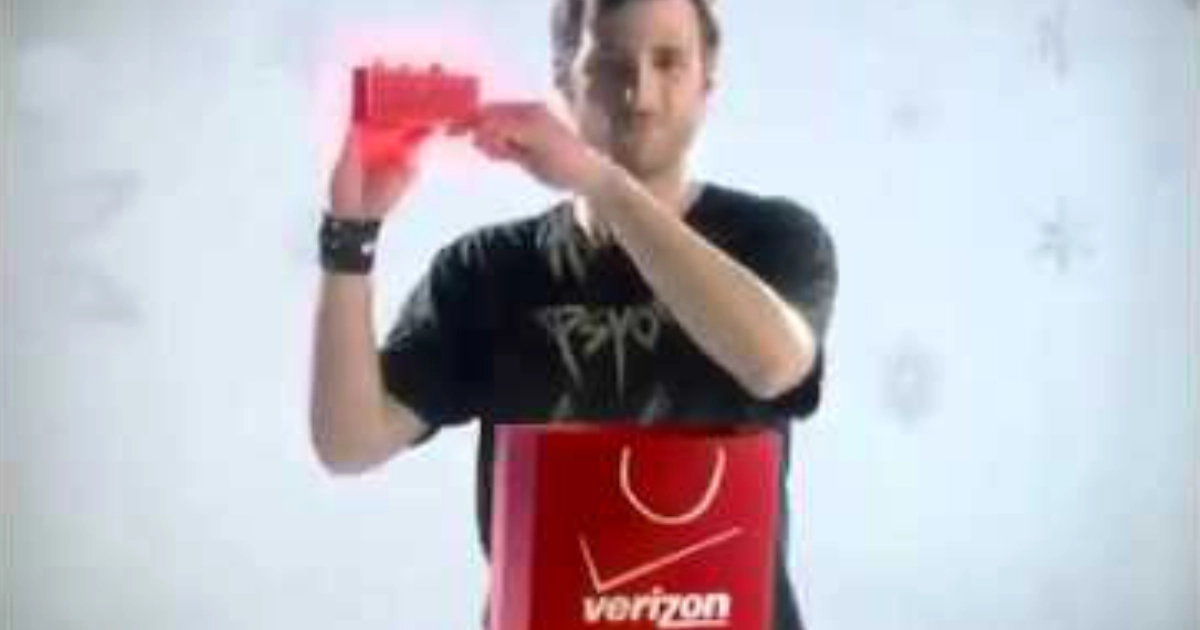
2012-2016
Verizon shifted from network reliability to user empowerment. The campaign positioned Verizon's technology as tools that strengthen people and enable world-changing work. The company backed this message with action, awarding millions through their "Powerful Answers" program to fund solutions in education, healthcare, sustainability, and transportation.
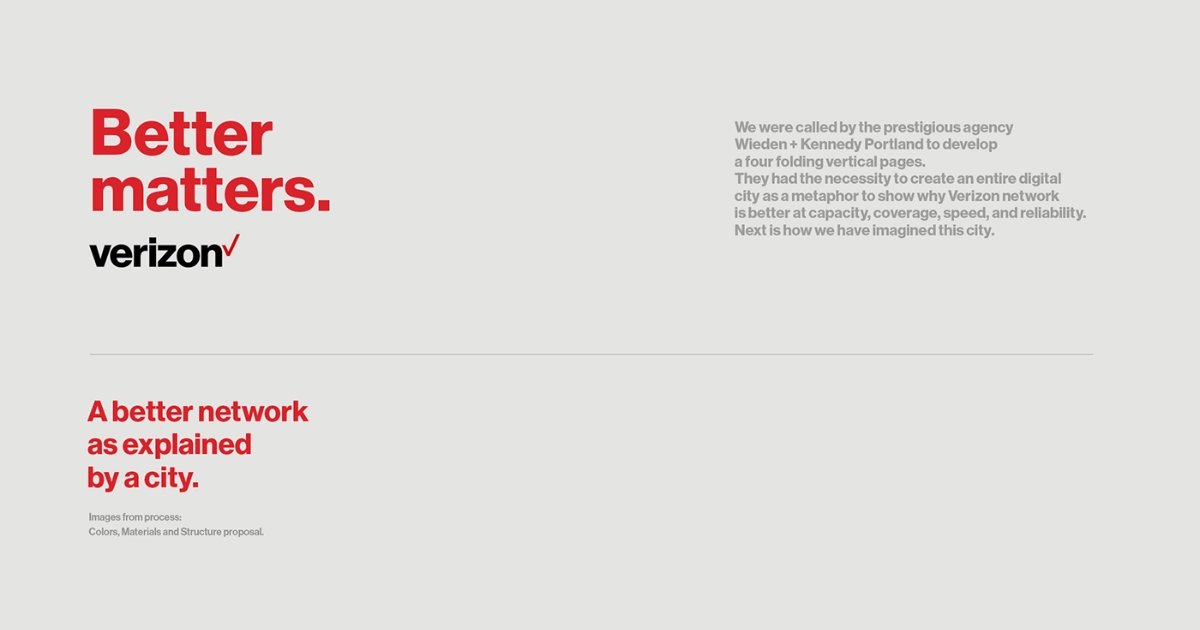
2011-2016
After retiring "Can You Hear Me Now," Verizon tested various network-focused slogans. The company emphasized technical superiority through coverage maps, speed tests, and performance data while searching for the right smartphone-era message. This period saw fragmented messaging as Verizon experimented with different approaches.
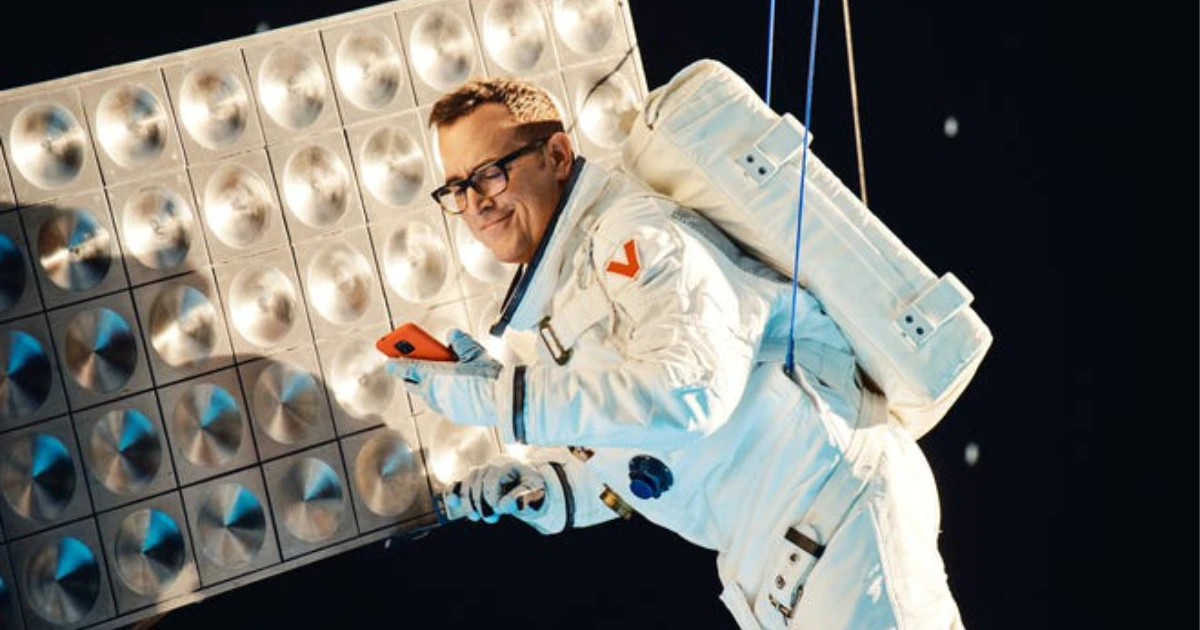
2024-present
Verizon brought back its famous slogan with a complete rebrand. Turner Duckworth designed a new logo: a red "V" with a yellow glow. At the time of this writing, the campaign targets younger audiences through TikTok while keeping existing customers engaged.
Paul Marcarelli returned in 2025, this time alongside astronaut Buzz Aldrin to promote Verizon's satellite messaging services. The ads compete directly with Apple's emergency satellite features, bringing the "Test Man" full circle from terrestrial to space-based communications.